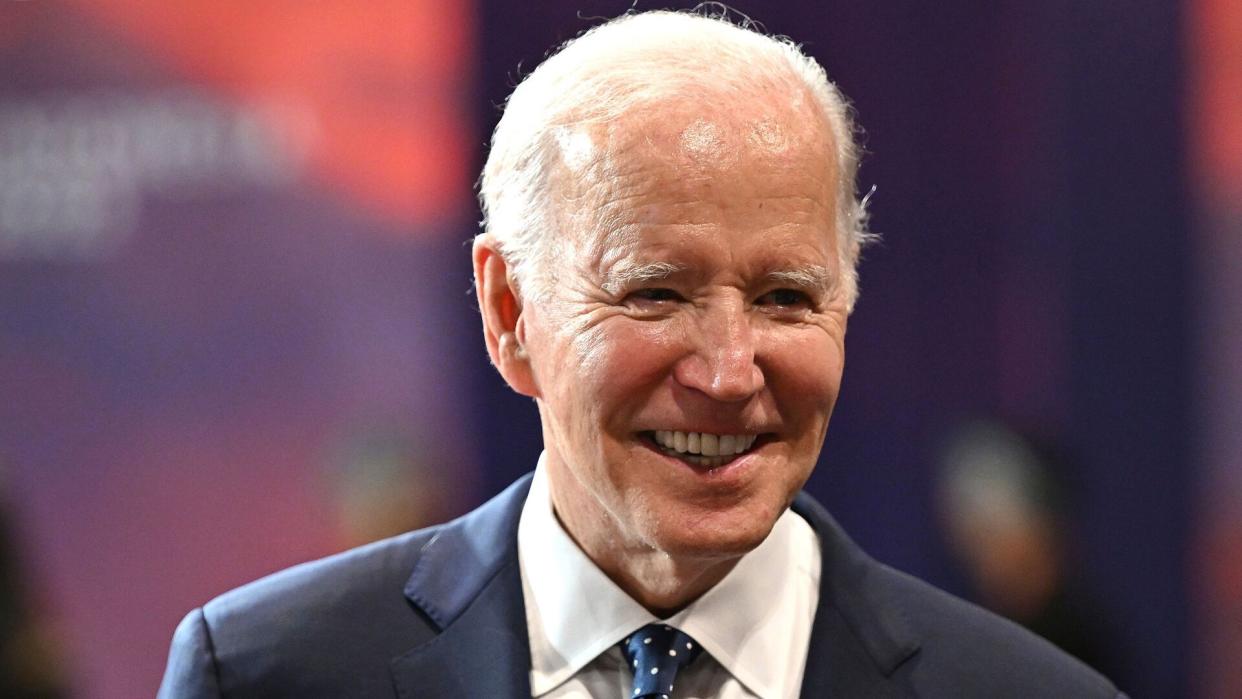Student Loan Forgiveness: Supreme Court Will Hear Case, But Biden’s Program Will Remain Paused

The Supreme Court said it would hear President Joe Biden’s student loan forgiveness program in February, a move the administration called “welcomed.” But meanwhile, the program is paused, leaving millions of borrowers waiting for a decision.
Student Loan Forgiveness: Federal Court Upholds Ruling That Biden’s Plan is Unlawful
Discover: Secure Act 2.0 Has the Hidden Benefit of Helping Pay Down Student Loans
“We welcome the Supreme Court’s decision to hear the case on our student debt relief plan for middle and working class borrowers this February,” Press Secretary Karine Jean-Pierre said in a statement posted on the White House website. “This program is necessary to help over 40 million eligible Americans struggling under the burden of student loan debt recover from the pandemic and move forward with their lives. The program is also legal, supported by careful analysis from administration lawyers. President Biden will keep fighting against efforts to rob middle class families of the relief they need and deserve. As we previously announced, student loan payments will remain paused while the Supreme Court resolves the case.”
The administration had turned to the Supreme Court on Nov. 18 to vacate the nationwide injunction put in place on Nov. 14 by a federal appeals court, temporarily barring President Joe Biden’s student loan debt relief program.
“The injunction will remain in effect until further order of this court or the Supreme Court of the United States,” a three-judge panel of the U.S. Court of Appeals for the 8th Circuit said, according to the Nov. 14 ruling, GOBankingRates previously reported.
The Supreme Court order comes on the heels of another blow to the program, as a federal court declined to reverse a ruling blocking President Joe Biden’s student debt relief program on Nov. 30.
The three-judge panel of the United States Court of Appeals for the 5th Circuit unanimously rejected the administration’s request to reverse a Texas judge’s ruling that is blocking the student debt relief program, according to court filings.
Bloomberg reported that the administration will now also turn to the U.S. Supreme Court to seek a reversal of the 5th Circuit’s decision.
On Nov. 10, a federal judge in Texas struck down the Biden administration’s student loan forgiveness program, saying that the law “does not provide the executive branch clear congressional authorization to create a $400 billion student loan forgiveness program,” according to court documents.
“Courts have issued orders blocking our student debt relief program. As a result, at this time, we are not accepting applications. We are seeking to overturn those orders,” a notice on Studentaid.gov now reads.
In turn, the administration announced on Nov. 22 that the student loan pause — which was set to end Dec. 31, 2022 — will be extended to the end of June 2023, while the administration awaits the Supreme Court’s review of its student debt relief program, as GOBankingRates previously reported.
“The Administration is extending the pause on federal student loan repayments to allow for the Supreme Court to rule in the case on the student debt relief program. The pause will end no later than June 30, 2023. Payments will resume 60 days after the pause ends,” the White House tweeted.
The department reiterated that 26 million people have applied for debt relief, and 16 million borrowers have been approved.
“But court orders are blocking the Department from discharging student loan debt and accepting additional applications,” it said.
Take Our Poll: Do You Think Student Loan Debt Should Be Forgiven?
Under the Biden plan, up to $10,000 in federal student debt relief may be offered to borrowers whose income in 2020 or 2021 was less than $125,000 (or $250,000 for households). That figure rises to up to $20,000 in student loan cancellation for Pell Grant recipients. If you are a dependent student, your eligibility is based on your parental income. Most federal loans are eligible, including undergraduate and graduate direct loans, parent PLUS and grad PLUS loans, and consolidation loans. Federal family education loan (FFEL) program loans held by ED, Perkins loans held by ED, and defaulted loans, according to studentaid.gov.
More From GOBankingRates
This article originally appeared on GOBankingRates.com: Student Loan Forgiveness: Supreme Court Will Hear Case, But Biden’s Program Will Remain Paused
